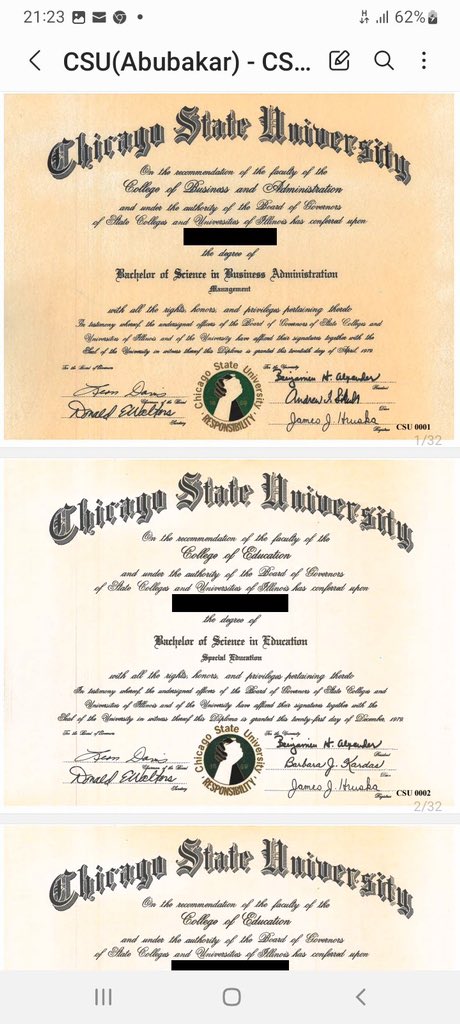
CURRENT REPORT BLOG the certificate submitted by Bola Tinubu to INEC has raised serious questions about its authenticity. This issue directly contravenes the provisions outlined in Section 137(1)(j) of the Constitution, which explicitly states that individuals presenting forged certificates to INEC are ineligible to hold the office of President in Nigeria.
The pivotal question now revolves around whether the Supreme Court will uphold the legitimacy of an individual accused of presenting a forged certificate. Atiku’s legal team has been proactive in seeking clarity on this matter. They made a specific request to Chicago State University (CSU) to provide copies of the original certificates awarded to graduates in 1979. Frames 1 and 2 display exact replicas of these certificates, providing a basis for comparison with the certificate submitted to INEC by Tinubu (Frame 3).
In addition to this request, Atiku’s legal team also asked CSU to locate and produce the exact diploma certificate issued to Bola A. Tinubu in 1979. However, CSU’s response to this request was surprising – they were unable to locate the diploma certificate.
Compounding the intrigue surrounding this controversy is a gender-related discrepancy found in the records. Frame 4 presents the result transcript of Bola A. Tinubu as provided by CSU today, and it notably designates the gender as ‘F’ for Female. This discrepancy adds an additional layer of complexity to an already intricate situation.
The submission of a potentially forged certificate to INEC by Bola Tinubu has ignited a significant debate. This controversy has implications not only for his political aspirations but also for the integrity of the electoral process in Nigeria. As the matter unfolds and heads to the Supreme Court, the nation awaits a verdict that will determine whether Tinubu’s certificate is affirmed or denied as genuine.











